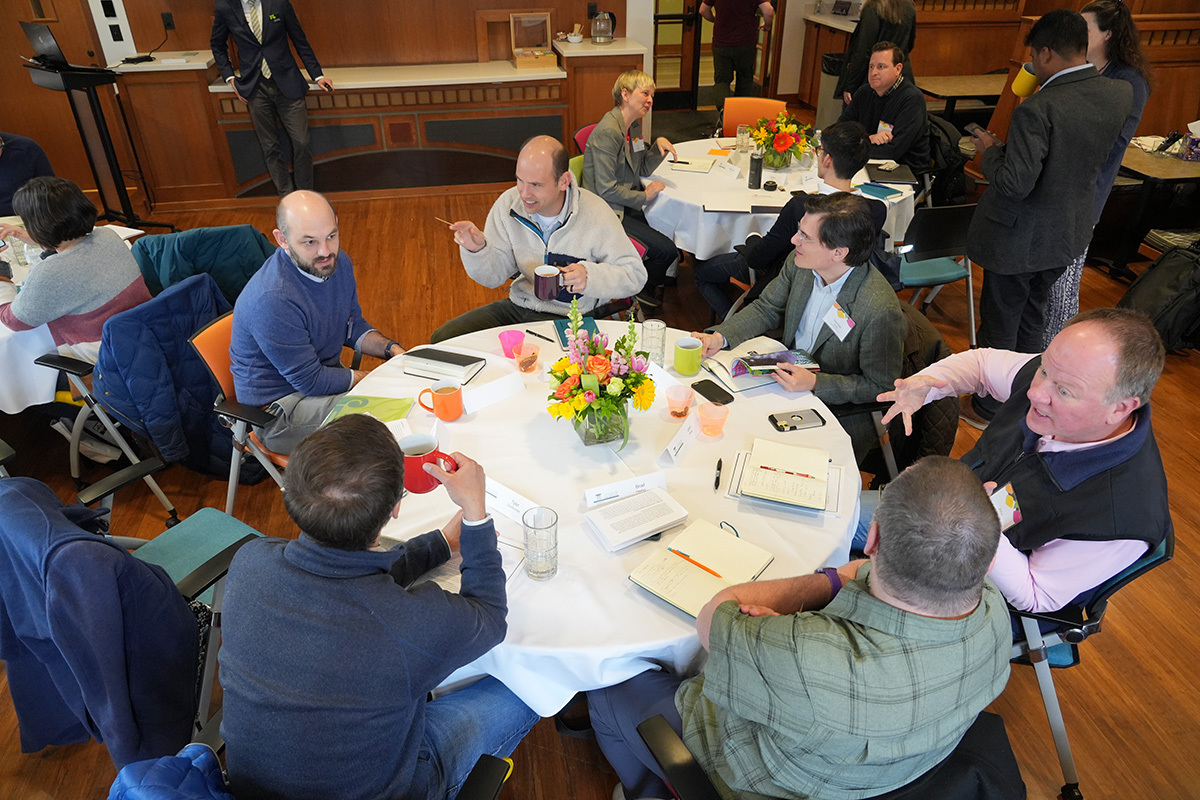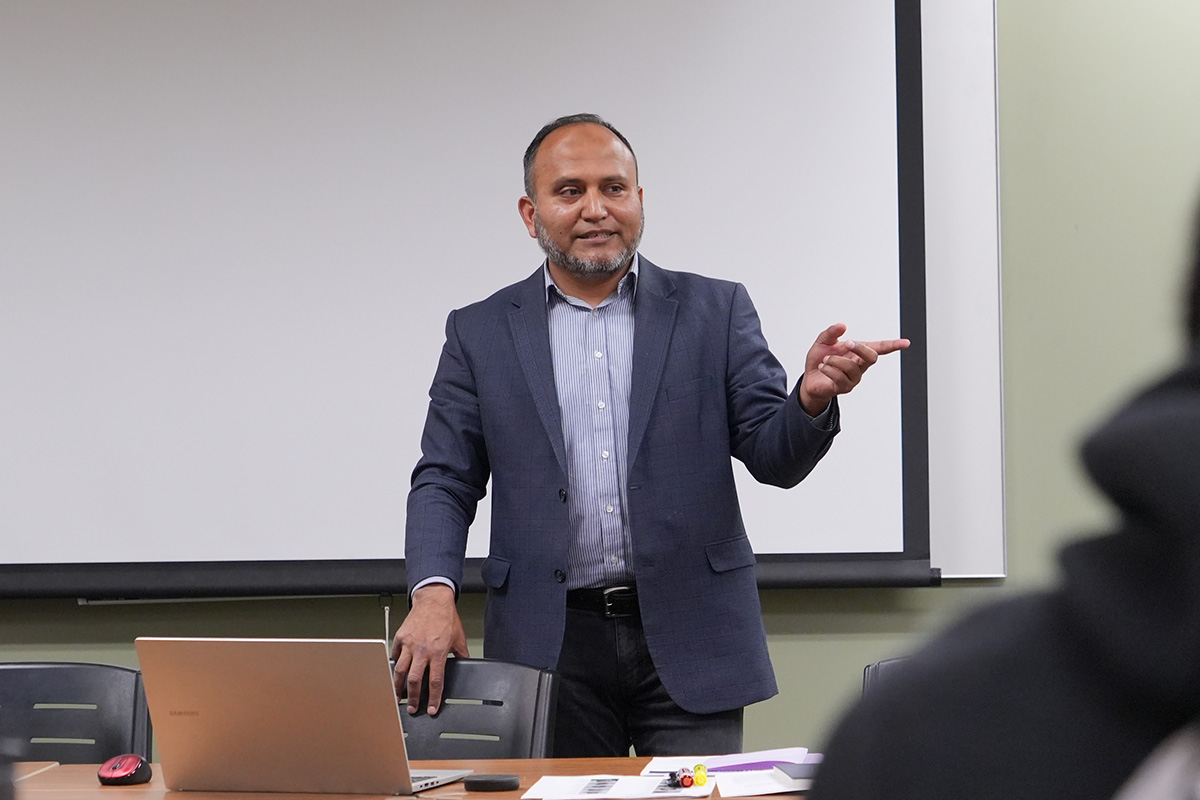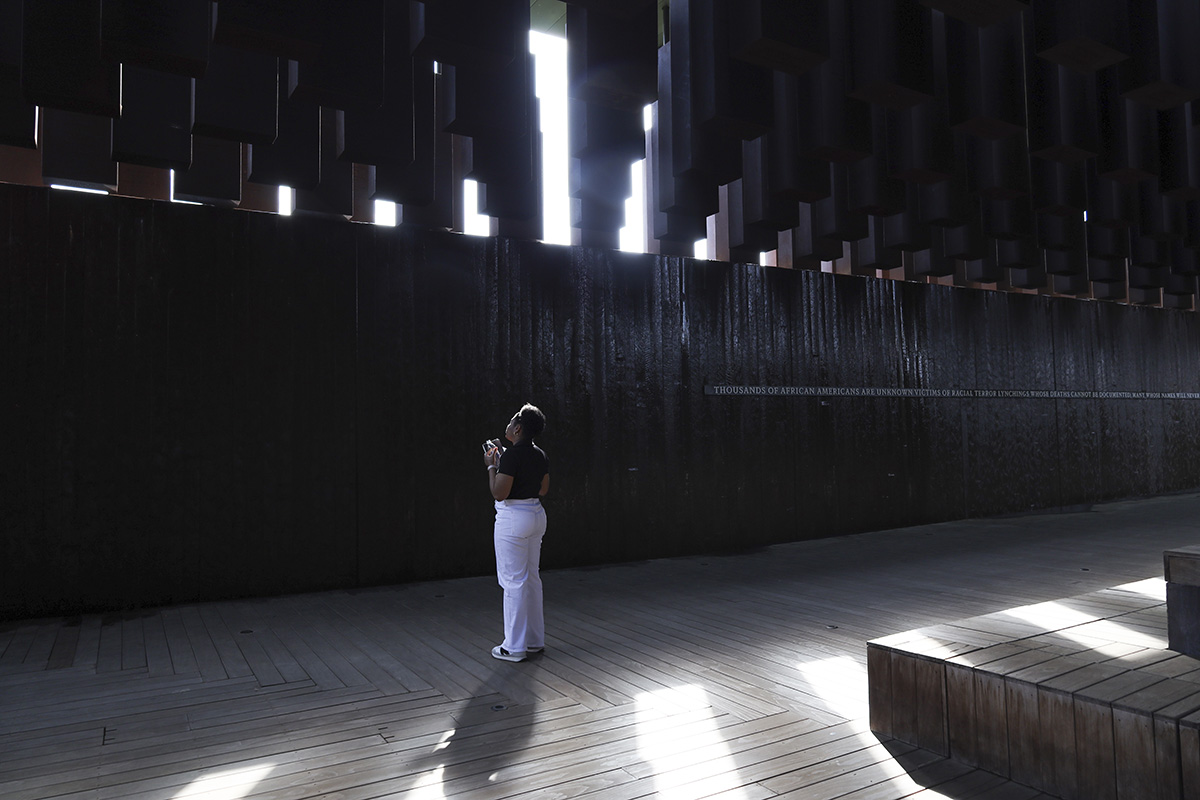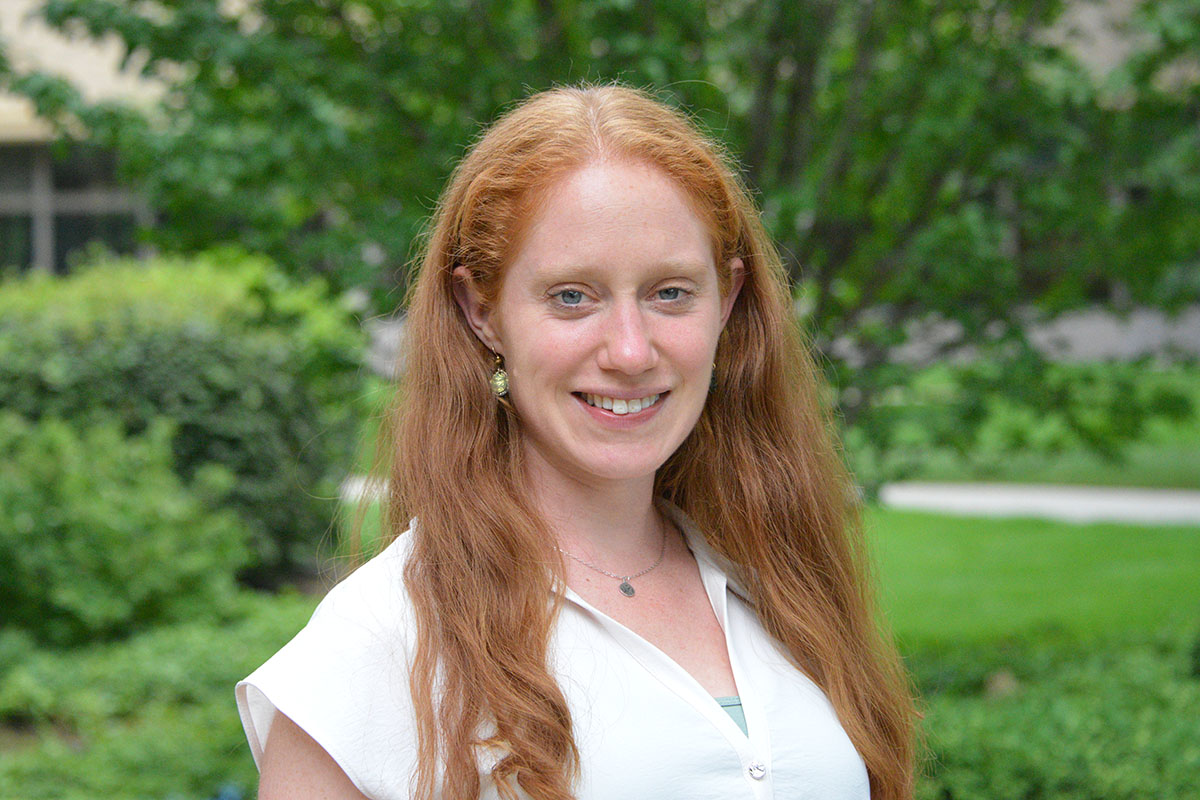New partnership brings Clemente Course in the Humanities to South Bend community
October 25, 2023
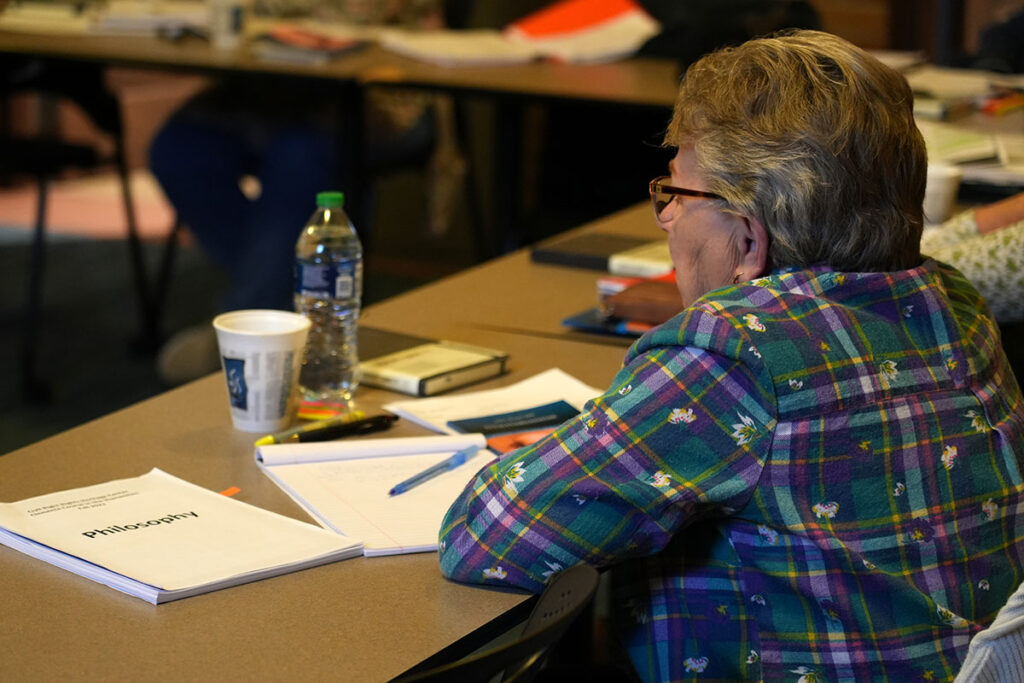
It’s a Wednesday evening at the Indiana University South Bend Civil Rights Heritage Center.
Nine students — ranging in age from 18 to 72 — are sitting seminar-style in the center’s library. With pens in hand and notebooks out on their desks, along with stacks of philosophy texts, they’re ready to dive into John Stuart Mill’s theory of utilitarianism.
The students are taking their first college-level courses through the Clemente Course in the Humanities, a national program that the IU South Bend Civil Rights Heritage Center began offering locally this fall with support from the Center for Social Concerns.
During the 11-week fall semester, the group is taking courses in philosophy, U.S. history, and critical thinking and writing. In the spring, they will take literature and art history, plus more instruction and practice in critical thinking and writing.
On this particular evening, the students are meeting for Introduction to Philosophy taught by Patricia Blanchette, the McMahon-Hank Professor of Philosophy at Notre Dame.
Blanchette opens the class session on utilitarianism by asking, “Does anyone remember or want to give us a quick rundown? Tell us what kind of situation would make Mill say don’t do that.”
One student offers, “If it causes pain.”
Another adds, “If it causes more harm than good.”
With Blanchette’s encouragement, they drill down on the subtlety of Mill’s theory — that an action is right or wrong based on how much pain and/or pleasure it causes compared with any of the alternatives available in that moment.
From there, they delve into Immanuel Kant’s contrasting theory of moral philosophy, which holds that the rightness of an action should be measured by a person’s motive, not the action’s consequences.
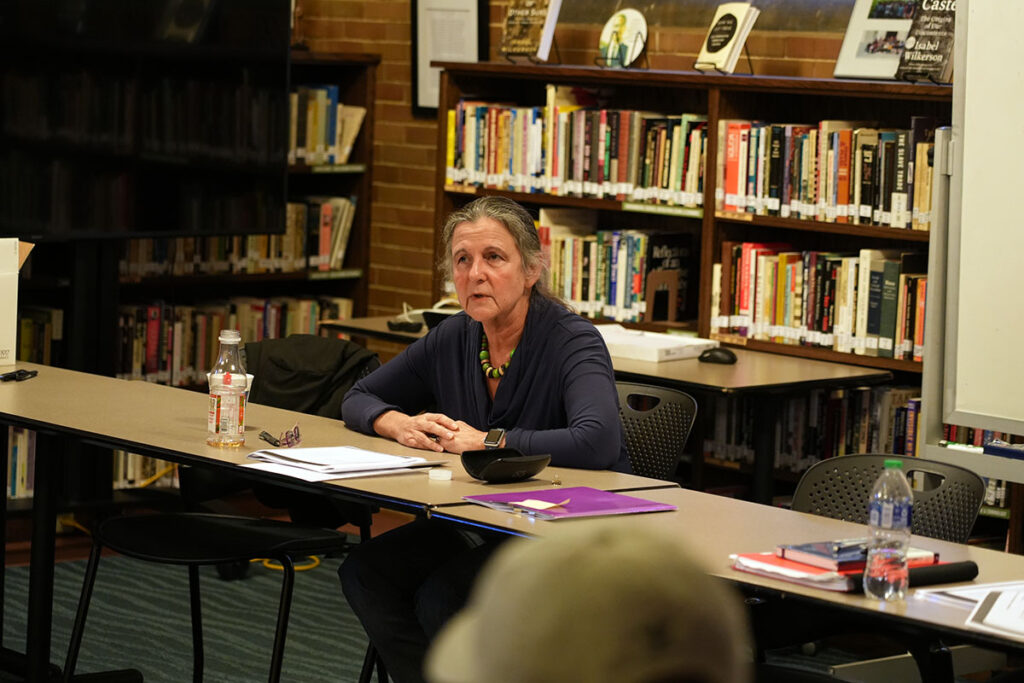
Blanchette emphasizes Kant’s rule that a person should never be treated as a mere means. “That’s the same thing as saying always treat human beings as ends in themselves,” she says before going on to explain the significance of Kant’s theory to ideas about human rights.
Darryl Heller, director of the IU South Bend Civil Rights Heritage Center, said the premise of the Clemente Course is that the humanities are foundational to critical thinking and problem solving — and therefore important to everyone.
“Everyone wonders about questions of justice, whether something is beautiful and how we define the aesthetics of our environment. The humanities are a conduit to do that in a more self-conscious way,” he said.
“This is an opportunity for people to learn and develop their human capacities for critical thinking,” he added. “That’s fundamentally important in a democracy.”
The Clemente Course in the Humanities was established by Bard College in 1996 out of the recognition that many people from low-income backgrounds and marginalized groups have had limited access to higher education. The program, now available in more than 30 communities nationwide, is designed to bridge that gap.
Locally, the Clemente Course is a partnership led by the IU South Bend Civil Rights Heritage Center with support from the Center for Social Concerns.
The Center for Social Concerns has promoted the democratization of education through other initiatives, such as Notre Dame Programs for Education in Prison. The partnership to make the Clemente Course available in South Bend is another way to extend the transformative opportunity of a college education to more community members who have, for whatever reason, faced significant barriers to higher education.
The program in South Bend is starting small this year with nine students, but Heller said the goal is to enroll 25 students next fall.
The Clemente Course is designed to be of no cost to students. That includes providing books and course materials as well as transportation and child care.
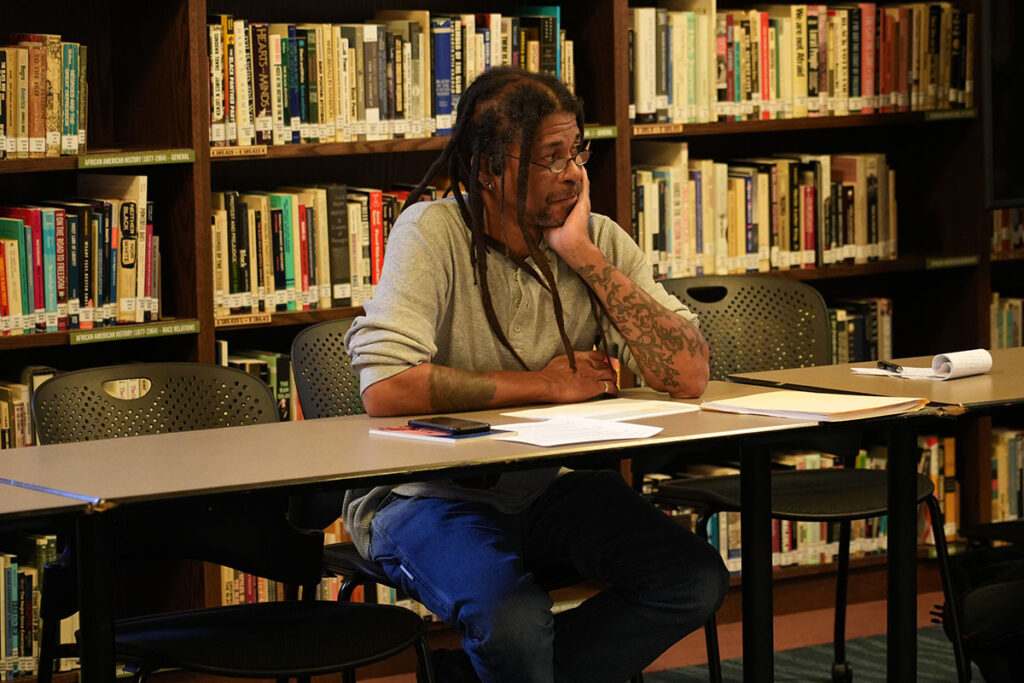
“The idea is to remove as many barriers as possible for students to succeed,” Heller said.
“All courses are taught by university professors,” he added. “This is not a dumbed-down version of philosophy or history. These are college-level courses.”
At least one faculty member from IU South Bend and one from Notre Dame will teach in the Clemente program each semester through the partnership. Heller is teaching the U.S. history course this fall.
“It’s just an amazing, fulfilling experience to teach a Clemente course,” said Heller, who has taught the courses in past years in Chicago. “It’s sort of like watching the light behind someone’s eyes come on and realize their capacity and potential. They get really excited about learning.”
Blanchette said she’s excited to be part of the Clemente Course, and especially pleased to be teaching through the Civil Rights Heritage Center.
“A strong humanities education is critical for thoughtful engagement with the world, and I’m delighted to be part of a program that’s broadening the reach of just such an education,” she said. “And I’m having a lot of fun doing it.”
Students who complete all of the year’s courses will potentially be able to earn six college credits from Bard College. They can carry those credits over to a community college or four-year college to proceed toward a degree.
“Nationally, a lot of students are in the Clemente Course for the credit because they want to pursue a degree,” Heller said. “Others are in it for their self-development.”
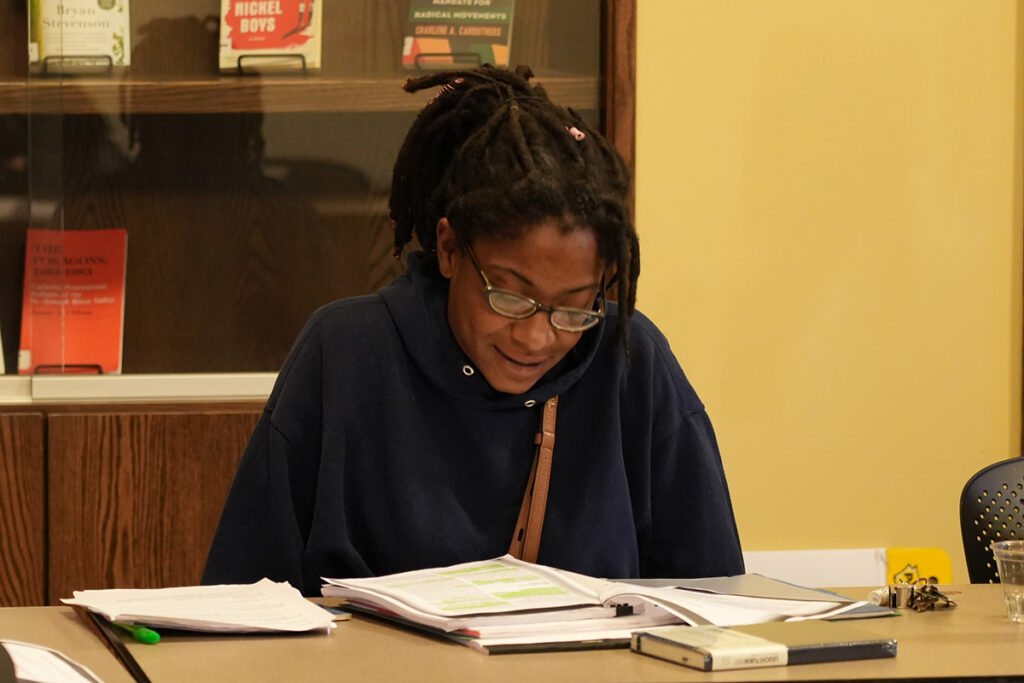
Alexia Umble is working to earn six credits through the Clemente Course with hopes of pursuing a degree in teaching or nursing.
The 27-year-old mother of two is a graduate of Clay High School in South Bend, where she participated in the high school’s performing arts magnet program.
“It was always my plan to go back to school,” Umble said. “This has been a good experience. They provide a lot of resources to help you, and it’s an environment where it’s not hard to be really engaged in the classes.”
Learn more about the Clemente Course in the Humanities.
Related Stories
-
Virtues & Vocations holds third Integrating Virtue Together workshop
-
From the army to anthropology: Postdoc’s path to peace-and-justice research has been a journey
-
Center for Social Concerns partners with Klau Institute for Civil and Human Rights on Racial Justice in America course
-
NDBridge, Summer Fellowships leverage connections across campus and around the world
-
Good intentions and good results: Postdoctoral fellow studies how organizations can have positive impact
